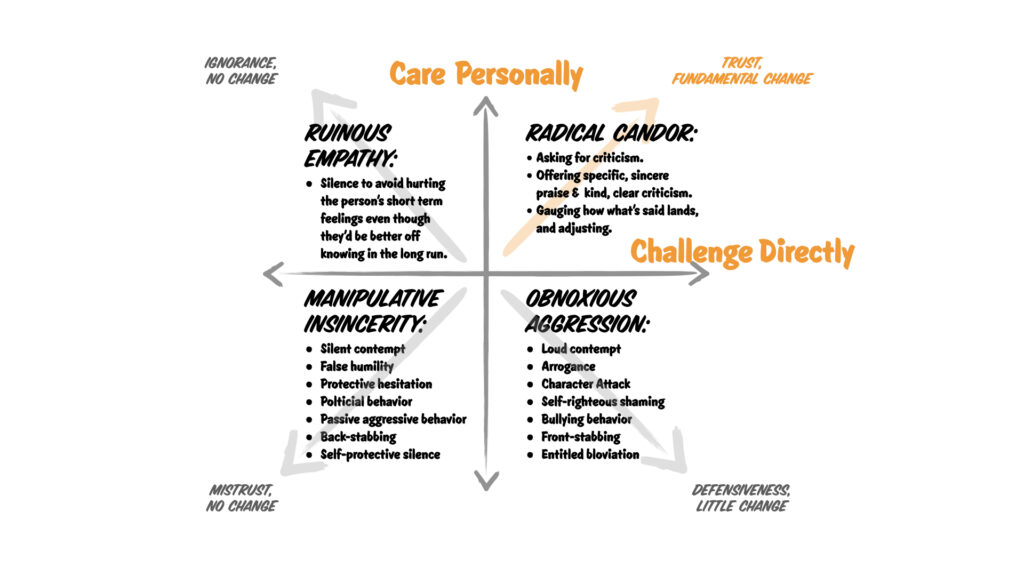Why we avoid difficult conversations
Let’s be honest. Nobody wakes up excited to tell someone they’re falling short. Many leaders avoid direct feedback out of fear – fear of hurting feelings, damaging relationships, or creating conflict. Some believe that by being “nice,” they’re protecting morale.
But niceness without honesty isn’t kindness. It’s avoidance.
And avoidance erodes trust.
As the award-winning British entrepreneur and TV personality, Sara Davies, puts it: “Not being honest doesn’t empower people.”
The cost of not being straightforward
When leaders aren’t straightforward, people fill in the gaps. They sense the tension, the frustration, the disapproval – but they don’t get clarity. So, they guess. And usually, they guess inaccurately which can lead to insecurity and confusion.
Here’s what silence really costs:
- Slower team performance
- Tension and resentment
- A culture of uncertainty
- Missed opportunities for growth
Here are a few principles we coach leaders to follow when having difficult conversations:
- Be clear, not cruel
Speak with respect and directness. Focus on the behaviour or issue – not the person. Avoid sugarcoating, but don’t swing to the other extreme of being harsh. Clarity is kindness. - Prepare, don’t script
Know what you need to address. Outline key points, but don’t memorise a monologue. Be ready to listen as much as you speak. - Start with intent
Lead with your positive intention:
“I’m having this conversation because I care about your growth and want you to succeed.”
“My goal is to help you grow and feel supported in your role.”
“I’d like this conversation to open up opportunities.”
“I believe in your potential, and that’s why I want to talk about this.”
- Invite dialogue
Ask for their perspective. Allow space for response, emotion, and problem-solving. Conversations go two ways. - Follow through
Support change, don’t just demand it. Set clear expectations and check in to offer guidance and accountability.
Ultimately, at the heart of every difficult conversation is intention; the desire to support, not criticise.
That’s why we encourage leaders to use the NICE approach:
- Neutral: Stay calm and objective
- Inform: Clearly explain the issue or behaviour
- Choices: Discuss options and next steps
- Empathy: Show you care about their growth and success
For a deeper dive, the book Radical Candor by Kim Scott is an excellent resource. It offers a powerful framework that helps business leaders transform how they communicate and build trust by striking a balance between caring and challenging.
Where do you land in the Radicle Candor matrix below?






